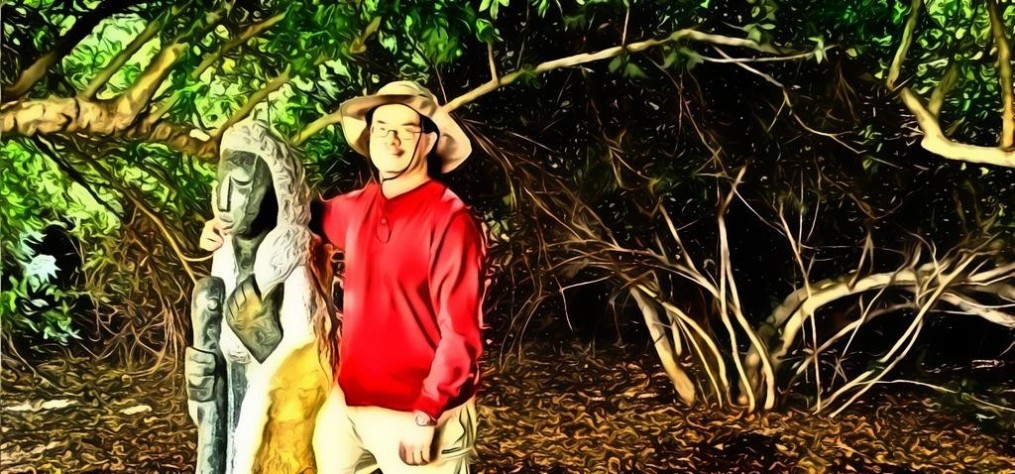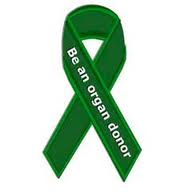I always wanted to be three things: a writer, an ecologist and a teacher. I have lived a very good life, for I have managed to accomplish each of these careers. I just had a different plan on how I would become a teacher.
For almost two weeks I agonized about writing this post. Actually, it has been a worry since I began this blog. Of all my posts, this one is a game changer. I am not sure how you will react.
The schools I work at and board I work for know about this, but they are in a position to do something about it when circumstance requires response.
You are not and therefore knowing about this does not serve either of us, I thought.
Then last week happened.
If you could save a life, would you?
Last week was National Organ and Tissue Donation Awareness Week (NOTDAW). It is actually an international recognition of the need for and celebration of the generosity of organ and tissue donors.
I attended a joint celebration of NOTDAW and the twenty-fifth anniversary of lung and heart transplants in Alberta in the Guru Nanak Dev Healing Garden of the Mazankowski Heart Institute thirteen days ago. At this celebration, doctors, recipients, donor families, recipient families, live donors and media gathered together to meet, re-meet and share stories. Many of the founding Alberta and University Hospital transplant doctors and the longest living heart and lung adult and pediatric recipients attended. They were all there to share in a very personal way the message that organ and tissue donation, particularly heart and lung organ donation, exponentially saves and improves lives.
My gift
The most touching moment of the celebration for me was when the daughter of a man asked all the people in the third and fourth rows to stand up. She then listed all of the organs and tissues that her father donated to various people upon his death. Twenty-eight people were saved and now live better quality lives. The daughter’s presentation was poignant, all the more so because I was one of the people who stood up.
In August of 2000, several fatal accidents killed people in Manitoba, Northwest Territories and Alberta. I had fainted two days earlier and so was in the hospital already. I had been given five years before a transplant was necessary, but, when I fainted, within a year, I was a month away from dying. I was the first person to get a transplant from the generous organ donors who died in those accidents.
My heart had succumbed to a condition called idiopathic dilated cardiomyopathy. Essentially, my heart grew so weak that it stretched like a balloon and was on its way to popping. On hindsight, symptoms existed all my life. But when you live with them since infancy, you are not aware of them. My cardiologists believe I was infected with an aggressive individual or colony of a common and normally unremarkable virus when I was an infant.
Transformative journey
At the time that I was diagnosed with dilated cardiomyopathy, I was applying to a PhD position in ecology. I had been accepted by the University of Calgary and was waiting acceptance from the University of Alberta, where the specialists I wanted to become my supervisors taught. I never did discover whether the U of A accepted me or not.
My plan was simple. I love writing and nature. I chose to write as a hobby and study nature as a career. I engaged in different fields of study in ecology with each degree I took. And I worked so many years between my Masters and coming Doctorate studies in yet another field. I had planned to work in yet another field or other fields after my PhD, then with this breadth of skill and technology retire from ecology and become a teacher rich with academic and practical biological and writing experience. You see, I wanted to pass forward my passion. I wanted my passion to be my legacy.
But my cardiomyopathy cut this short. I discovered that I could no longer work outside, so I decided to become a teacher right away. And so I am here, with the restriction that I lack the stamina to work regularly part or full time. With much deliberation, I decided to remain a substitute teacher, where I get to experience many classes, many grades, many subjects and many schools. I chose my blog title to reflect this decision.
My heartfelt thanks
If it were not for an unfortunate and undisclosed man or woman who signed an organ and tissue donation card, I would have died eleven and a half years ago. Then I would not have realized my dream to become a teacher, I would not have met the wonderful and fascinating students who so enrich my life and I would not have met any of you. My life is indeed rich and spectacular.
I wonder occasionally, sometimes quite by surprise, about the person who had died and saved my life in the same act. His or her sacrifice and generosity inspire me to be better at everything I can control each day than I was the day before. I never try my best, for I refuse to create a ceiling for myself. I’d rather climb from a foundation than toward a ceiling; there is no limit when you have a sound foundation and unbounded potential. I love. I thank. I rejoice.
I have mixed feelings when I think about my saviour and her or his family. I am grateful, thankful, guilt-ridden and sorry. And I almost forgot to say it enough.
Writing this post
Your heart is a wonder of physiology and evolution. It is more than just a pump, a piece of muscle that pushes fluid through your body. It has its own “nervous” system, sensors and metronomes. When it works properly, it operates non-stop for every second of your entire life. Its activity is not perpetual, but it is constant.
I was really reluctant to write this post. I saw only harm come from doing so. If this post were about me at all, I would not have written it.
But it is not about me, is it?
You see, last week I attended a celebration of the twenty-fifth anniversary of heart and lung transplants in Alberta. And I stood up while a furiously proud daughter of a donor listed how her father saved and improved as many lives after death as he did during life. And I wanted to say thank you, even though I never benefitted from this man until that moment.
But I benefitted from someone and that someone lost everything so I could benefit.
I dedicate each day and each act to life and my donor.
Each life saved or improved is really a ripple, for every act the beneficiary makes influences others who influence more and more.
I am a teacher and there is no better place I could be to make many big differences.
Please, do four things for me
- Sign your organ and tissue donation card and talk to your family about your wishes.
- Take care of your health. Eat well, exercise well, avoid illicit drugs, alcohol, tobacco and salt and build your personal and professional networks. Love. Care. Help.
- Let me know if this post moved you. I agonized over it for a long time; it feels like months since I attended the celebration last week. I hope I did not lose your respect.
- And finally spread the word. It is important, and I nearly forgot.
Oh, and just in case I have not said it enough, thank you, donor. You gave me a second life and I am trying to use it well. I am dearly sorry that you had to die before I could begin again. May God bless you, your family and your friends. May their memories of you be fond and their thoughts of me be kind and proud. I may not be able to donate any organs, tissues or blood anymore, but I did sign my organ and tissue card before I needed your help and I try to do well by those I meet, placing their needs (though not necessarily their wants) ahead of my own. (Okay, sometimes I treat myself too.) Thank you for giving me your life. I wish I could give something to you.
More information
I wrote another post about my transplant in response to a post from Malyn Mawby, who read this post.
Images of the Guru Nanak Dev Healing Garden
The Mazankowski Heart Institute
Tissue and Organ Donation
25 Years of Heart and Lung Transplants in Alberta
Personal Stories, Advocacy and Efforts
Dilated Cardiomyopathy
 IMG_0486 © 2008 Chazz Layne | more info (via: FlickrStorm)
IMG_0486 © 2008 Chazz Layne | more info (via: FlickrStorm) Eureka Tower Double Flip © 2007 Ian T Edwards | more info (via: FlickrStorm)
Eureka Tower Double Flip © 2007 Ian T Edwards | more info (via: FlickrStorm) Fountain at Eureka! in Halifax © 2009 Adrian S. Jones | more info (via: FlickrStorm)
Fountain at Eureka! in Halifax © 2009 Adrian S. Jones | more info (via: FlickrStorm) EUREKA! I Found it! © 2008 g d (Gary Dean) t???????d? | more info (via: FlickrStorm)
EUREKA! I Found it! © 2008 g d (Gary Dean) t???????d? | more info (via: FlickrStorm) Humboldt Gasworks © 2005 Cassidy Curtis | more info (via: FlickrStorm)
Humboldt Gasworks © 2005 Cassidy Curtis | more info (via: FlickrStorm) Foxy! © 2008 Wavy1 | more info (via: FlickrStorm)
Foxy! © 2008 Wavy1 | more info (via: FlickrStorm) Searching © 2009 Eric Magnuson | more info (via: FlickrStorm)
Searching © 2009 Eric Magnuson | more info (via: FlickrStorm) Road Less Taken © 2007 Dave | more info (via: FlickrStorm)
Road Less Taken © 2007 Dave | more info (via: FlickrStorm) Creamsicle Sunset © 2008 Evan Leeson | more info (via: FlickrStorm)
Creamsicle Sunset © 2008 Evan Leeson | more info (via: FlickrStorm)










